Here are the questions submitted about my blog Interrupt OCD’s Mental Rituals with “May or May Not” (MOMN) and my answers.
Q1
Can MOMN (“may or may not”) statements be used for existential ocd thoughts? Some of the thoughts are “What is the meaning of life?” Questioning if the world is real. “What is my purpose” “If I am real”. I have had many different sub types of OCD such as relationship OCD, harm ocd, and some others. I find this type to be hard to come up with the scripts.
A: Yes, MOMN statements, which are a type of exposure scripting, can be used with any type of OCD content…because OCD is not about the content! OCD always picks themes that are meaningful for you (otherwise you wouldn’t care and OCD wouldn’t be successful), such as the ones you list above—relationship OCD, harm OCD, existential OCD—but what OCD is really about is uncertainty. MOMN statements help you be present with obsessions in a way that allows you focus on the uncertainty about the content instead of the content itself. As Jon Hershfield, MFT and I discuss in Everyday Mindfulness for OCD, using MOMN statements is about picking up OCD’s content off the conveyor belt in your mind, repackaging it with a focus on uncertainty, and putting it back on the conveyer belt that heads for the trash!
Some examples of repackaging the existential thoughts you share are “Life MOMN have any meaning. The world MOMN be real. I MOMN have a purpose. I MOMN be real.” But then you can add in a powerful statement confirming that you’re going to act as though what OCD is saying is garbage: “But I’m going to act as if life does have meaning, the world is real, I do have a purpose and I am real, even if all that might not be true.” The essence of good ERP is to act as though OCD’s content is irrelevant, even if it feels relevant. This is the power of the Shoulders Back strategy I’ve discussed in previous blogs (the original and the Q&A).
Q2
Hi Shala. Wondering if you have any advice about…
1) Recognising that you’re in the courtroom. Sometimes I get stuck for a few days on something that isn’t typically something I associate with my OCD, although it’s usually about getting the ‘right’ answer to a question. Eventually I see what I’m doing and then the MOMN really helps, but I’d like to improve on the 2-3 days of lag time!
2) When the courtroom is debating a decision you have to make (eg. Should I go to the IOCDF conference this year…?!) and you have to make a decision, but you end up circling round and round each time you try.
A: One of the biggest issues people recovering from OCD can face is getting stuck ruminating on what seem like “real life issues” (e.g. Am I slipping into a depression? Should I go to the IOCDF conference? Are we living in a house that’s optimally designed for our needs?) because these worries don’t immediately strike us as being OCD content. I call these types of obsessions “stealth OCD” because they sit on the line between content that’s typical of OCD and content that people with generalized anxiety disorder (GAD) might worry about*. The best way to catch these mental compulsions earlier is to be aware of the process of what’s happening in your mind as opposed to the content of the worries. You can use the following questions to help identify a problematic process:
- Are you wrapped up in some worry, where you are thinking about the same thing over and over again throughout the day?
- When you wake up, do you immediately think of this worry?
- Have you become depressed, because you are convinced this worry is true?
- Are you beginning to doubt yourself and your capabilities based on these thoughts?
- Are you feeling overly fatigued?
- Is your mind racing at night, preventing you from sleeping?
If some or all of these are true for you, you’ll probably under a stealth OCD attack, and applying ERP to the situation would probably be helpful, even if it’s not a true OCD concern.
*And just because you might have this doesn’t mean you have GAD, it’s just that GAD concerns tend to be more real-life things that many people might be concerned about, but not to the extent that they would affect someone who has the disorder.
Q3
How long you have to do MOMN statements for mental rituals?
A: This question is at the heart of using exposure scripting for OCD, which is again what MOMN statements are. Let’s say you’re ruminating about whether you’re going to end up in hell. If you say, “I MOMN go to hell” one time and stop with that, well, likely you’re going to go right back to ruminating, which is a compulsion. It would be like touching a doorknob for contamination exposure and then washing your hands…it’s good you touched the doorknob, but then you aren’t doing response prevention, so you’re strengthening the association between touching doorknobs and needing to wash your hands.
What we want to do instead is touch the doorknob and not wash our hands, or wait as long as we can before washing our hands again, so that the brain has time to learn that it can handle the uncertainty of whether or not our hands are dirty**. The same is true for using exposure scripting. We want to say the scripts long enough to interrupt the mental rituals so that the brain gets a chance to learn that it can handle the uncertainty. If you’ve been doing mental compulsions about whether or not you’re destined for hell, you might need to say “I MOMN end up in hell” out loud for 5 mins, 15 minutes, or 50 minutes, etc. to help your brain get used to not doing compulsions in your mind and that it can tolerate the uncertainty of not doing them. When I use MOMN scripts, I typically try to do them until I start to get bored…that’s when I know that my mind is beginning to accept the uncertainty and can let go of the content.
The time and effort involved are drawbacks of using exposure scripting, in that it can take a long time and a lot of energy to use them effectively. If you can instead direct your mind back to your task and keep yourself from mentally ritualizing, using something like Shoulders Back/Man in the Park, that’s a stronger strategy. However, as I discussed in the original blog post, if you cannot keep yourself from doing mental compulsions, this is where exposure scripts are a blessing.
**Remember, it’s not about whether your hands are dirty or not, it’s about the uncertainty of not knowing. OCD is based on an intolerance of uncertainty. All that content it uses to scare you…dirty hands, going to hell, existential worries, etc… is just content. OCD is not about the content. It’s about uncertainty.
Q4
I understand how to come up with the statements to say, but how do you take the next step of actually believing what you say? I can say the MOMN statements, but how do I actually stop engaging with the content and not mentally checking whether I did something or not?
A: The MOMN statements are designed to interrupt the process of engaging with the content. Our minds don’t multitask well (or really at all, much to everyone’s dismay!), so if you’re saying your MOMN statements out loud it’s quite difficult to be mentally checking in your head.
If you find yourself mentally checking while scripting, try to be more mindful of saying the MOMN scripts. Intently focus on what you’re saying. What we’re trying to do here is be present with the obsession in a way that’s not compulsive, embraces the uncertainty of the situation (which is what all this is really about), and interrupts the mental rituals.
With OCD treatment, a change in belief about the OCD content tends to follow a change in action. You’ll start believing what you say when you consistently act as though what the OCD is saying doesn’t matter (while not doing rituals), allowing your brain to accept the uncertainty of the situation. This is an important point, because for exposure scripting (which can also be called imaginal exposure) to be most successful, it needs to be paired with actions (in vivo exposure) that show your brain that you’re acting like OCD’s worries are not relevant to your life. The bonus is that when you’ve accepted the uncertainty, you won’t feel like this particular topic is even an issue that you need to believe or not believe. It just won’t matter anymore.
As I’ve mentioned in previous blog posts, a faster way to get a belief change is using the Shoulders Back/Man in the Park ERP technique, because with that technique you are doing the in vivo exposure of behaving as though what OCD says doesn’t matter while not interacting at all with the OCD in your head. That action of “behaving as though” is an incredibly powerful indicator to the brain that there’s “nothing to see here, move along,” and I’ve found my beliefs change more quickly as a result. I use MOMN when I’ve gotten sucked into the content and can’t get out (made eye contact or taken a pamphlet, using the Man in the Park metaphor), but the moment I feel strong enough, I go back to acting as though what the OCD is saying is garbage. Because it is….even though it might not feel like it.
Q5
One of my OCD triggers that I have a hard time dealing with is the uncertainty of whether I can do a task at work. Once I start questioning my ability to do a task, the noise in my head gets so loud that I cannot do the task, regardless of whether I have the capability to do so or not because I cannot concentrate enough to get the task done. I can use the MOMN statements to combat the noise, but as soon as I stop the MOMN statements enough so that I can concentrate on the task, the noise starts back up. What should be a five minute task has taken me 4 hours so far, and I’m no closer to getting the task done. I don’t see how this can work.
A: I can completely understand your frustration, because when OCD gets in the way of our ability to function, it feels like you just can’t win.
But you can! I think two things might be helpful here:
- One is to do what we call “worry time,” which is when you set aside a time specifically to worry about all the things that are bothering you. The ideal application of worry time is to also use it as a delay technique for rituals, so when worrisome thoughts, aka noise, comes into your head, you can say to it, “Hey, I hear you, but I’ll address your concerns in worry time. I’m going to back to what I’m doing now.” For this situation, you could do some worry time before starting the task. For instance, you could say things like, “I MOMN be able to do this task right. I MOMN get it all wrong. All these bad things [feel free to name them here] MOMN happen if I can’t do this task. But I’m going to work on the task anyway!” What we’re doing is trying to get all the worries out of our heads and out on the table so we can look them in the face and say, “See! I can handle the uncertainty around all this!” Then, once the worries begin to feel less bothersome, you can work on addressing your task.
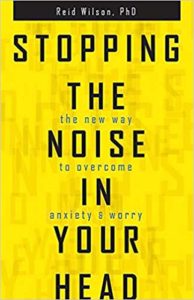
- When we start questioning our own abilities to do a task, we’re acting as if the noise matters, and that’s why it gets louder. Therefore, another strategy would be just to address the task in the presence of all the noise to whatever degree you can, because in doing so, you’re acting like the noise doesn’t matter…you’re turning your attention back to the task. An app that might help you (and anyone who suffers from OCD and/or another anxiety disorder) is Anxiety Challenger, available for both iPhone and Android. The app can help you deal with all the noise by challenging it through the actions you take, and it provides fantastic motivational messaging along the way. It’s the companion to one of my favorite self-help books for people with OCD and anxiety: Stopping the Noise in Your Head: the New Way to Overcome Anxiety and Worry.
Q6
I, like you, feel as if my mental compulsion processor is so fast and can go through the process of engaging with the content in a matter of seconds. How would you recommend approaching MOMN when it comes to feelings and moods? One of the added complexities that I feel I face is that engaging with the OCD content often results in a depressed or pessimistic mood. I interpret these changes in moods or feelings as giving validity to the content I’m engaging with, making it harder to engage with it’s uncertainty. Would you make the feelings that you have or lack thereof the object of the MOMN script/statement?
A: This question addresses a very subtle ritual that people with OCD sometimes engage in, which is acting depressed or pessimistic because you’re believing what the OCD tells you. As I discuss in chapter 6 of Fred, I spent a six-month period thinking I’d given myself AIDS, and during that time I felt incredibly depressed because I was not only interacting with OCD’s content, I was buying it hook, line, and sinker! I was acting as if my doctor had given me the diagnosis of having an incurable illness. I was acting as if what OCD was saying was true by acting depressed as a compulsion, and so I stayed stuck for months on end.
We don’t address this issue with MOMN statements, however. It may sound odd, but to address this compulsion we need to stop acting depressed/pessimistic! This is the essence of Shoulders Back: putting your shoulders back and acting as though what OCD is spouting is garbage. In my case, that would have meant doing things I enjoyed, letting myself feel the joy while I was in the activities (because that’s the exposure…letting go of the depression, which can feel protective in OCD’s world), and acting as though whatever issue OCD was threatening me with wasn’t a problem. While doing this, you may still feel remnants of the depression or pessimism, but you are working diligently to act as though you don’t feel them, to find whatever sliver of joy you can and focus on enjoying life.
For a more detailed discussion about this topic, please see one of my most popular Psychology Today blog posts, “The Subtle OCD Compulsion You Might Not Know You’re Doing.”
Q7
How do you respond to my self criticism (“I hate myself”, “They would all abandon me, if they knew” etc.) regarding repugnant thoughts?
A: Self-loathing is unfortunately all too common in those of us with OCD. But it’s really important to your recovery to recognize when you’re engaging in self-critical self-talk and to use self-compassion instead for two reasons:
- When you are mean to yourself, you are treating yourself like your OCD treats you, and that just gives it more power.
- When you’re self-critical, you’re demoralizing and demotivating yourself, making it harder for you to achieve your goals.
 I’ll refer you to my blog post on self-compassion for more about how to use this very important skill. I’ll also refer you to the presentation and handout from the 2019 IOCDF presentation that Dr. Jon Grayson and I gave where we covered self-punishment as a ritual in case you’re participating in this compulsion. With self-punishment as a ritual, we think we’re “bad” and deserve punishment. So if we punish ourselves then we will have “served our time” and then we can be wiped clean and think of ourselves as good again, but that day never comes and we get stuck in a cycle of self-punishment. The anecdote to this ritual is self-compassion, which will be an exposure because it will feel like you don’t deserve it (but you do!). This is another topic I’ll write a blog post about in the future.
I’ll refer you to my blog post on self-compassion for more about how to use this very important skill. I’ll also refer you to the presentation and handout from the 2019 IOCDF presentation that Dr. Jon Grayson and I gave where we covered self-punishment as a ritual in case you’re participating in this compulsion. With self-punishment as a ritual, we think we’re “bad” and deserve punishment. So if we punish ourselves then we will have “served our time” and then we can be wiped clean and think of ourselves as good again, but that day never comes and we get stuck in a cycle of self-punishment. The anecdote to this ritual is self-compassion, which will be an exposure because it will feel like you don’t deserve it (but you do!). This is another topic I’ll write a blog post about in the future.
Q8
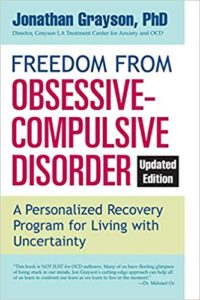 What other resources can I consult to learn more about scripting?
What other resources can I consult to learn more about scripting?
Dr. Jon Grayson’s wonderful book Freedom from Obsessive-Compulsive Disorder is where I first learned about exposure scripting and a great resource for anyone interesting in learning more about not only this topic but how to tame OCD in general!
Q9
Will I need to use MOMN statements forever?
A: The goal is to not use them forever, but instead to use them as a bridge tool if you have trouble stopping mental compulsions, as MOMN statements can:
- Allow you to identify the difference between obsessions (the “what if?” questions) and mental compulsions (trying to figure out the answer to those unanswerable “what ifs”).
- Give you practice in directing your attention away from mental rituals and onto something else (the scripts).
We use MOMN statements to help build the mental muscles to redirect away from compulsive mental activity so you can focus on what you care about in your life. Once you feel you can do that, fantastic…no need for scripting! The strongest strategy is to not give OCD any attention at all, as I discuss in my Man in the Park blog post, so the faster you can direct your attention to what matters to you, as opposed to what matters to the OCD, the better it is for your recovery.
Q10
I read the part of your article where MOMNs are not considered thought stopping/suppressing, but isn’t this engaging with the intrusive thoughts? If the goal is to not engage with the thoughts as they come in, couldn’t MOMN be considered engagement?
If you can ignore intrusive thoughts, great! Then you don’t need MOMNs!
But if you can’t: Yes, the eventual goal is to stop engaging compulsively with the intrusive thoughts. However, if you are used to having a conversation with OCD about all these thoughts in your head, and I tell you to stop doing that, you might find that really challenging. So if you can’t stop engaging with the thoughts because that’s what you’ve been doing for a long time, the MOMNs are used as a bridge strategy to help you engage with the thoughts in a non-compulsive way. And the less you engage with the thoughts compulsively, the more likely they are to eventually decrease in frequency, making it easier to learn to put your shoulders back and ignore the thoughts. But again, if you’re unable to ignore intrusive thoughts:
- the MOMNs help you engage in a more helpful way by playing up the uncertainty and anxiety in a not-compulsive manner and
- give you a way to interrupt the mental ritual cycle until you become skilled enough at recognizing and managing your OCD symptoms to be able to put your shoulders back and ignore the thoughts entirely.
Want to learn more?
 You can see my book, Is Fred in the Refrigerator? Taming OCD and Reclaiming My Life, for more about how I used MOMN scripting and Shoulders Back! as part of my OCD recovery.
You can see my book, Is Fred in the Refrigerator? Taming OCD and Reclaiming My Life, for more about how I used MOMN scripting and Shoulders Back! as part of my OCD recovery.
If you’d like to receive notifications of new blog posts, sign up for my Shoulders Back! newsletter, and I’ll send you OCD-taming tips & resources every month.
My blogs are not a replacement for therapy, and I encourage all readers to find a competent ERP therapist. See the IOCDF treatment provider database for a provider near you.





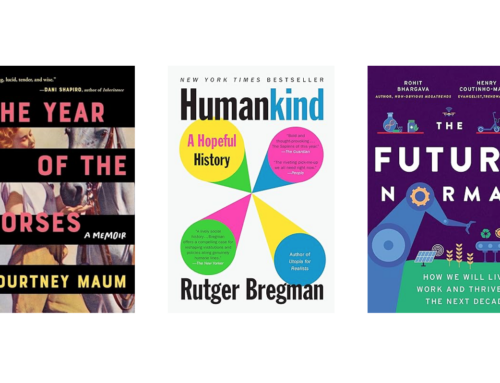

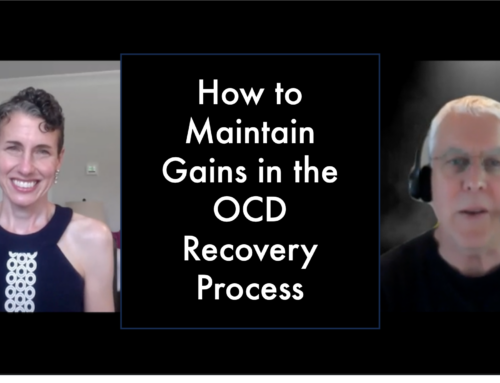
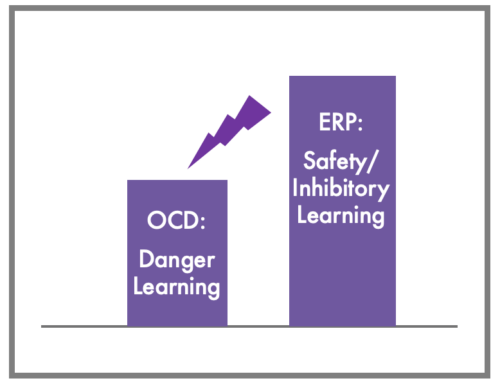
[…] under what I call “stealth OCD,” which is a mixture of OCD and generalized anxiety (see Q2 of this blog for more about stealth OCD). But OCD isn’t about the content, it’s about the process. What is […]
[…] on with my day, refusing to engage with the OCD in my head. If I have trouble with this, I use “may or may not” scripting to interrupt the cycle of mental rituals and/or do a quick proactive ERP and then go back to acting […]
Just wanted to thank you for this incredibly helpful post. I’m facing alone my OCD (I obviously would prefer not to do so…) and I have to say that your perspective about this desease, and the way you write about it, are just unique. I appreciate your being so pragmatic
and understandable without loosing a profound understanding of OCD and how to manage it properly. Thank you so much for all your work!